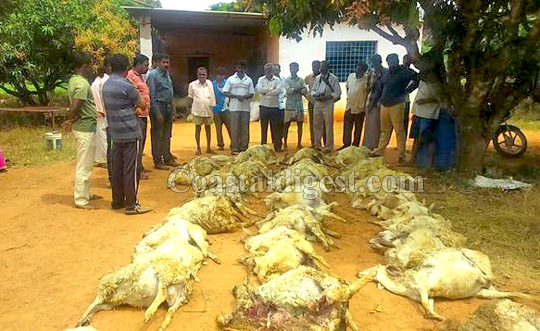Bengaluru, Jan 18: Amidst the ongoing probe into the multi-billion IMA ponzi scam, another similar scam has come to light in the city wherein around 2500 depositors, most of them Muslims, are fearing that them may lose Rs 350 crore.
Shockingly, Shafiullah, Rafiullah, and Zabiullah, three brothers who run the Baraka Investment Consultant Private Limited, have accused the police of taking over 10 crore rupees bribe from them.
The depositors say that when they recently demanded their investments back from the accused the trio, they allegedly told them that they had paid the Central Crime Branch (CCB) and the RT Nagar police over 10 crores and they could collect that money from the police.
The aggrieved investors alleges that the RT Nagar police have charge-sheeted the three accused only on the complaints of 13 affected depositors who lost precisely Rs 97 lakh and the case is being probed under the Prize Chits and Money Circulation Schemes (Banning) Act, 1978 instead of Karnataka Protection of Interest of Depositors in Financial Institutions Act, 2004 (KPID Act) or the Banning of Unregulated Deposit Schemes Ordinance, 2019 (BUDS) Ordinance.
Aggrieved victims alleged that when the Baraka Investment Consultants had a Registration Certificate of Establishments from Department of Labour issued on November 28, 2017. The CCB took up a suo-motu case against Tellnet Computers on August 16, 2018, after they received complaints from Baraka investors.
Apparently, the CCB knew that Baraka Investment Consultants and Tellnet Computers was one and the same and operating from the same office, but they did not mention the name of Baraka in the case initially for reasons best known to them, said the victims of the Ponzi scheme. A few victims who wished to remain anonymous told BM that a CCB police inspector and one of the accused, Zabiullah, were childhood friends, neighbours and both hailed from Chikkaballapur. This is one of the reasons, they allege, the inspector has protected the accused by downplaying the scam.
The case registered by the CCB states that there are only 500 to 600 depositors who deposited amounts between Rs 50,000 to Rs 1 lakh expecting returns ranging from Rs 5000 to Rs 7000 a month, but in reality there are more than 2500 investors who have deposited amounts ranging from Rs 50,000 to Rs 50 lakh, expecting returns between 12% to 24%, said the victims. Despite this, the CCB was sitting on the case and making no investigations, the victims alleged.
It was later on in May 9, 2019, an FIR was registered by the RT Nagar police when many victims approached the police commissioner and petitioned him. “Even in this case, the accused Zabiullah was not arrested. Zabiullah’s two brothers, Shafiullah and Rafiullah, and his father Abdul Rahman were arrested, but were later granted conditional bails,” one of the victims Mohammed Yahya (42), a software engineer said.
Yahya had invested Rs 10 lakh with Baraka. “Though this case has been charge-sheeted, the police have not made any recoveries or they have not confiscated any properties of the accused,” alleged victim Habibur Rehman (42) who had invested Rs 5 lakh in Baraka. “There is clear-cut evidence that the accused was dealing in foreign exchange using the investors’ money without their knowledge and was offshoring and parking crores and crores in countries like Russia, Dubai, Malaysia, and Singapore. Though the police knew about this, they did nothing to stop it or bring it back,” said Azgar Pasha (44), a businessman who had invested Rs 41 lakh.







Comments
we must get our food at time otherwise will eat your food.
Add new comment